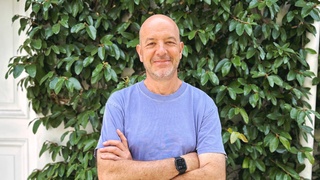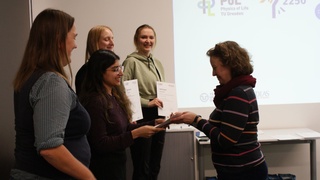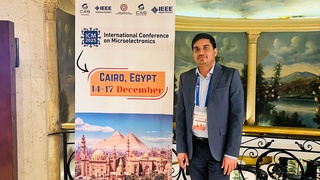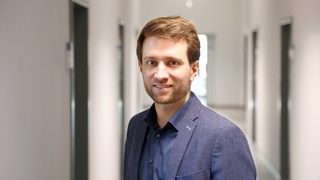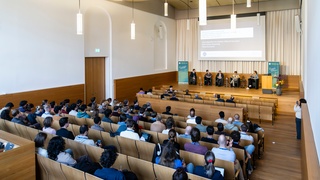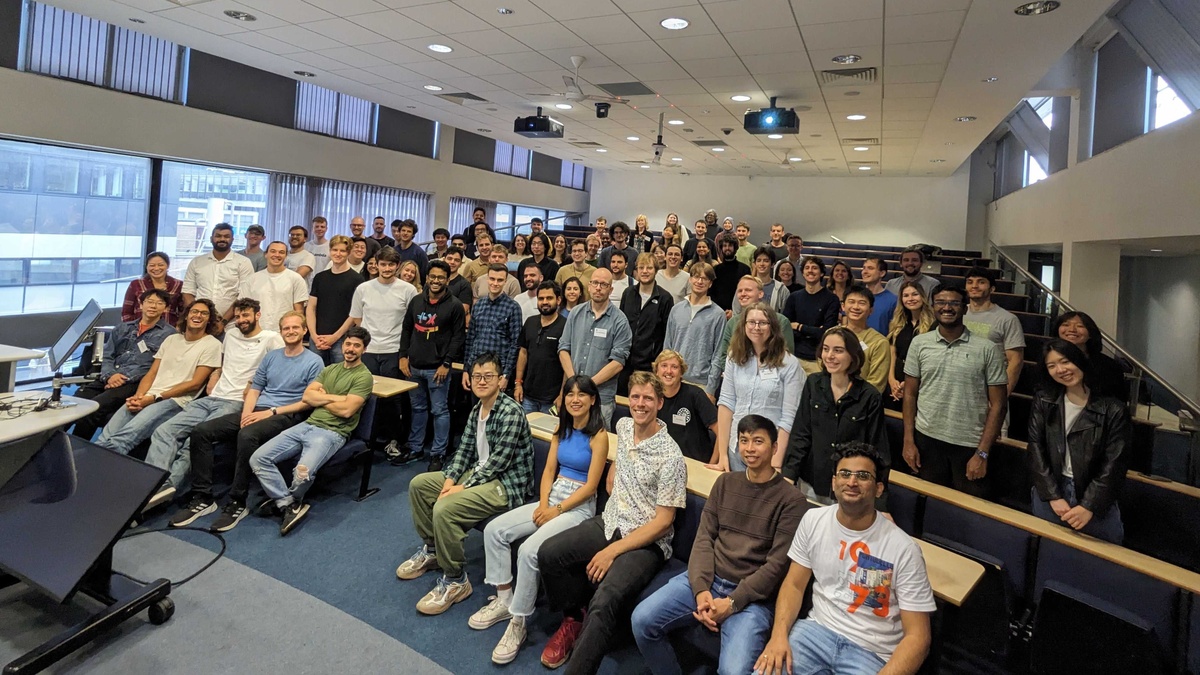
September 16, 2024
Summer School Achievements: SECAI PhD Candidates in Focus
In early July, the two SECAI PhD candidates Susu Hu and Danush K. Venkatesh attended different yet equally enriching summer schools, which played a crucial role in advancing their research within Stefanie Speidel’s Research Group for Translational Surgical Oncology. This group focuses on developing and evaluating computer- and robotic-assisted systems to optimize surgical outcomes by transforming the vast and complex data generated in surgical oncology into actionable insights. During the summer schools, Susu Hu worked on a project involving causal inference with graph neural networks, while Danush K. Venkatesh was awarded the Best Poster Award for his research on synthesizing surgical datasets with diffusion models.
The London Geometry and Machine Learning Summer School (LOGML), Susu Hu attended, was dedicated to geometry and machine learning. The event brought together a vibrant community of mathematicians and computer scientists. The program was structured with morning lectures and afternoon team projects, allowing participants to engage deeply with the material. Susu worked on a project focused on causal inference with graph neural networks, a complex topic essential for unraveling intricate data relationships. Reflecting on her experience, Susu remarked on the value of the networking opportunities, which could lead to future collaborations.
 © DAAD/Wagner
© DAAD/Wagner
Susu Hu (left) demonstrates her research
In contrast, Danush participated in the Eastern European Machine Learning Summer School (EEML) in Serbia, an initiative led by Google DeepMind. Selected from nearly 900 applicants, Danush presented his research paper “Synthesizing Surgical Datasets with Diffusion Models” at the poster session. The six-day program offered a comprehensive mix of lectures from both academic and industry professionals, covering topics from the fundamentals of machine learning to the latest advancements in vision-language models. Danush’s poster not only sparked meaningful discussions but also earned him the Best Poster Award for AI applications – a significant recognition of his work. Danush underlines: “The poster sessions provided a valuable opportunity to engage in research discussions with peers, while the mentoring sessions with leading researchers in the field were instrumental in advancing my PhD research.”
 ©
©
Danush K. Venkatesh (second person from right) receives best poster award
Their group is at the forefront of translational surgical oncology, bringing together experts from artificial intelligence, computer science, engineering, and medicine. Their research spans from creating and utilizing real and synthetic datasets in surgical data science to developing machine learning-based guidance systems for soft-tissue navigation and intraoperative visualization. Additionally, the group explores human-machine interaction, focusing on surgical workflow analysis, training, and robotic surgery. By investigating the entire surgical treatment path – from preoperative planning to postoperative recovery – the group aims to integrate these technologies into the operating room, enhancing personalized patient care and improving surgical outcomes. This approach aligns with their goal of optimizing surgical therapy through personalized digital representations and data deployment to improve eligibility, success rates, and the prediction of complications.
